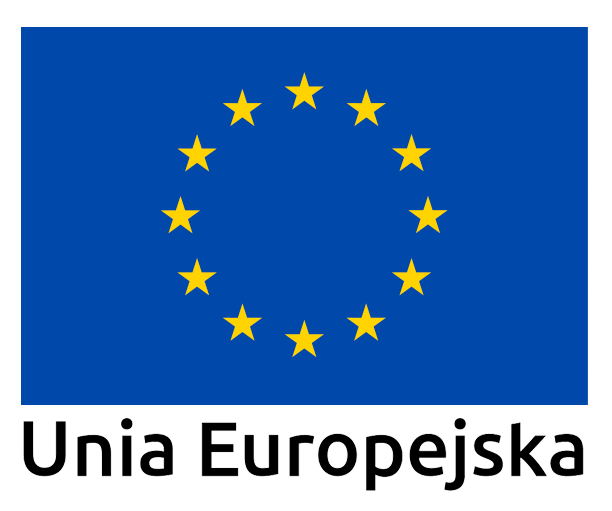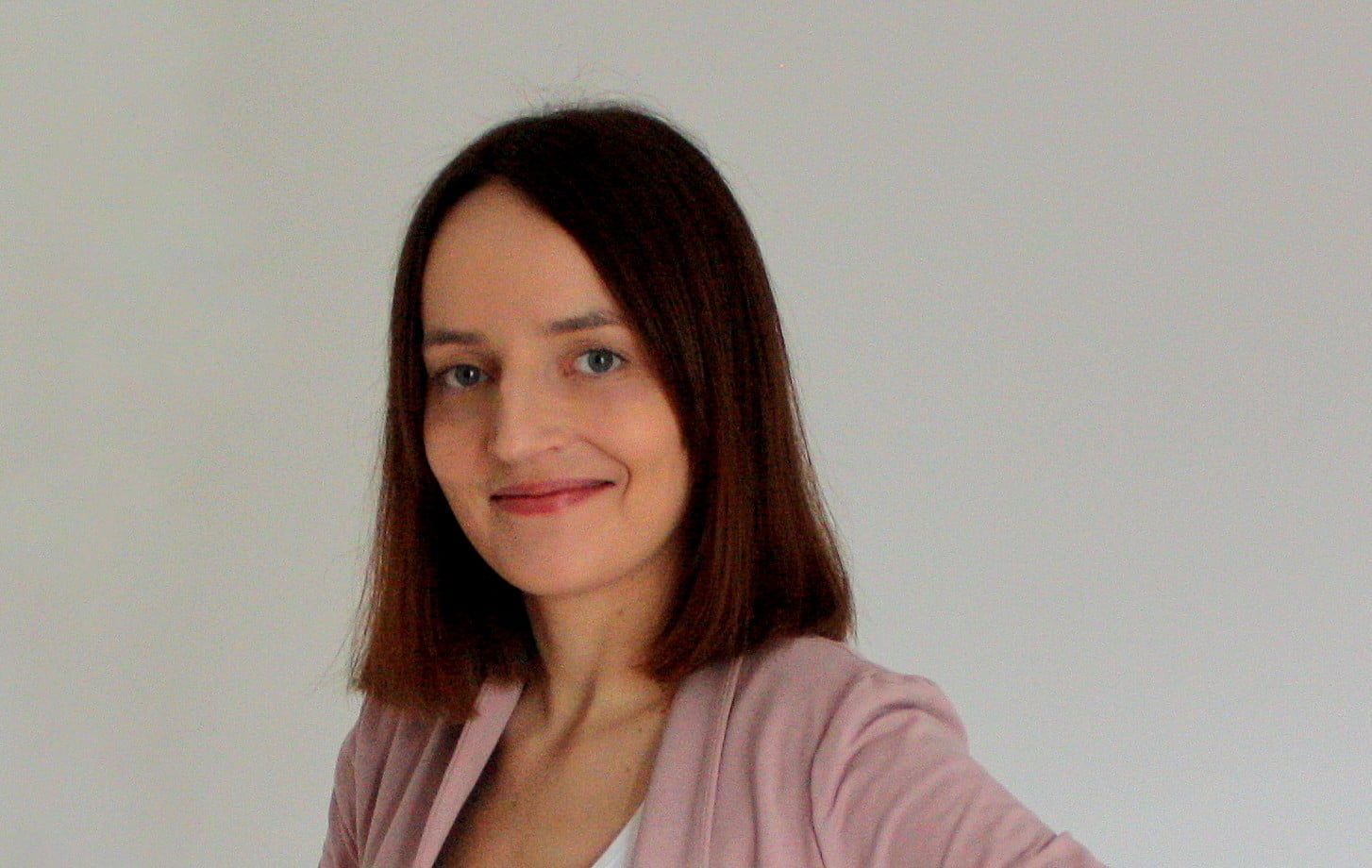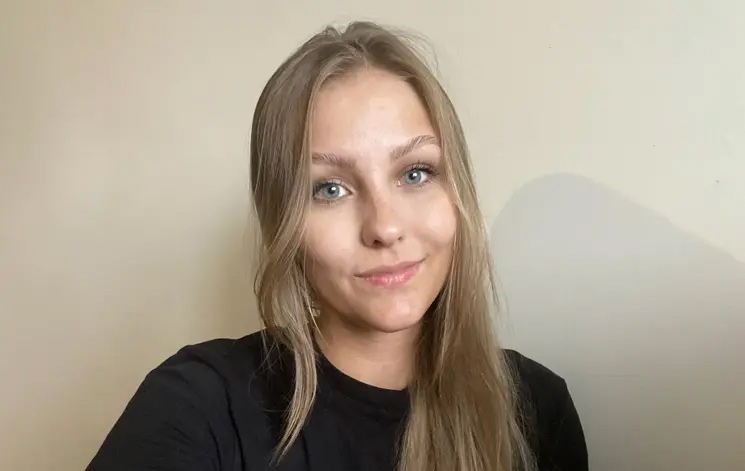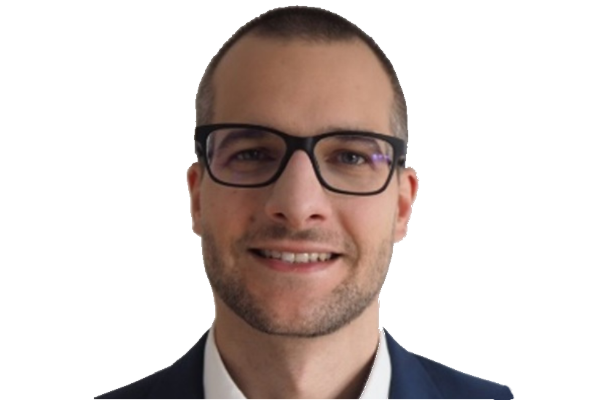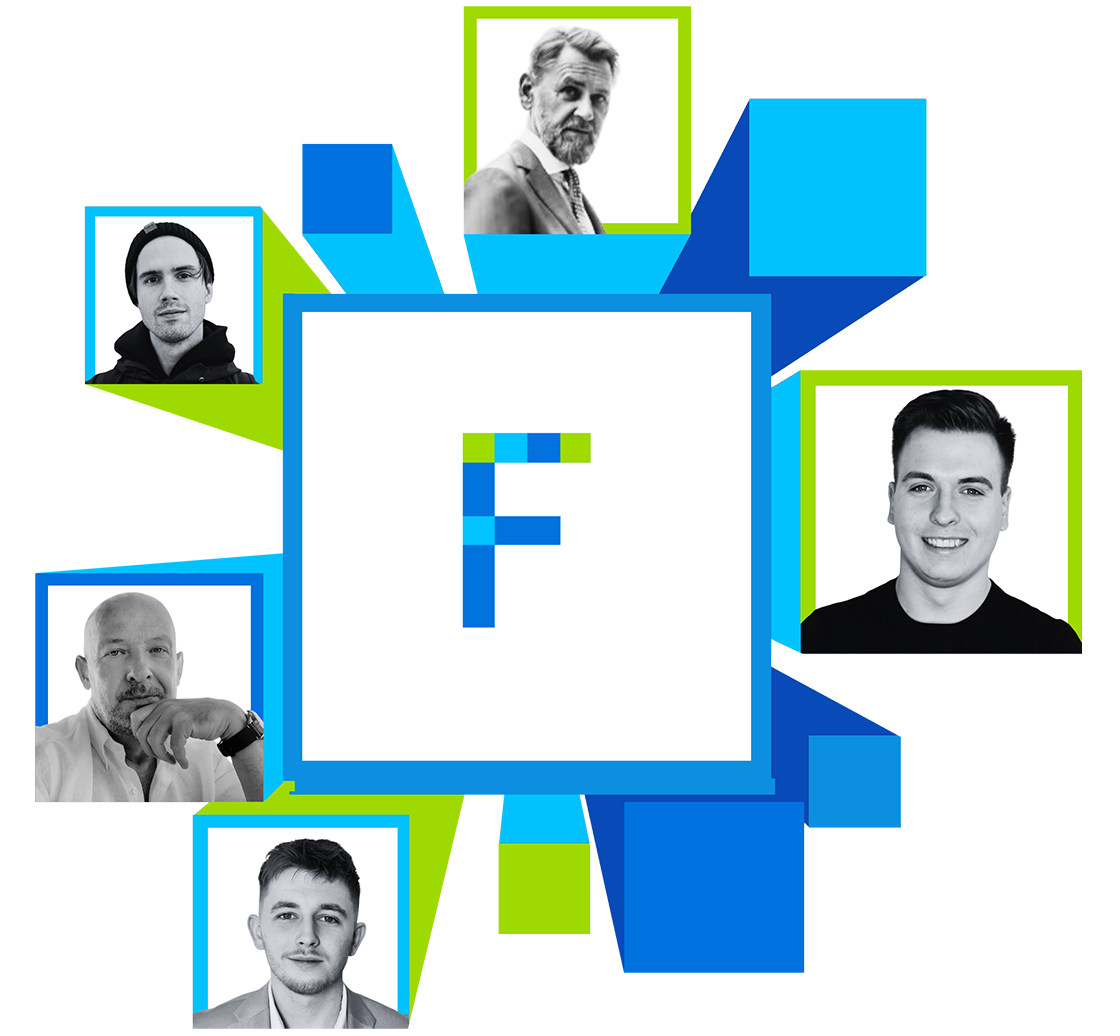Justyna is professionally fulfilled in two fields. He works as a senior scientific and research specialist at the Warsaw University of Technology and as a Data Scientist in a medical start-up. In addition, she is a mother of two young children. How does she manage to combine all the roles? This is possible thanks to the flexibility from working in IT and the partnership sharing of home duties and childcare with her husband. What was the most difficult for her in getting a job as a Data Scientist? Why was learning on the course a pleasure for her? What advice does she have for people who are in the process of changing the industry? Read the interview with Justyna and find out the answers!
What did you do before starting work in IT?
Previously, I was involved in scientific work. I was doing my Ph.D. in biomaterials at the Warsaw University of Technology at the Faculty of Materials Science and Engineering. The main topic of my work was the modification of the NiTi shape memory alloy surface in terms of applications for cardiological implants. Soon after defending my doctorate, my second daughter was born, and I had a natural maternity break. That's when I got the idea to enter the world of Data Science. I knew that this field was up-and-coming and had excellent development potential. However, I lacked tools that would allow me to navigate efficiently in this area. I decided to take the Data Science course at Future Collars.
Did your previous professional experience help you find yourself better as a Data Scientist?
I work on a research and development project, which is why my scientific background helps me carry out my tasks. Scientific work is generally about collecting and analyzing data and drawing conclusions from it, and I have been doing this for a long time in various editions. In this context, I can say that I use my previous experience in my current job, but I use entirely new tools and technologies that I did not know before, although I knew they existed and had great potential.
How do you remember learning during the course?
It was a pleasure to participate in the course. I remember it as a valuable time because I like learning new things. The material was structured, and we did tasks that motivated us to work systematically. The Data Science course lasted over three months, and the amount of material to be assimilated and its difficulty increased over time. At the end of the Bootcamp, when we were preparing the final project, there was a lot to do. While sitting on an issue, I sometimes forgot to go to bed at the right time and received a warning from my husband;) But this is a determinant for me - if it is late at night, and instead of being tired, I feel satisfied that I have managed to solve something, which means I like it. From the first analytical tasks during the course, I felt that Data Science would stay with me longer.
During the course, did you supplement knowledge, e.g., by reading books, blogs, or using other materials?
Yes, and I still do it today. The mentor on the course showed us the sources that are worth reaching for to deepen the topic. I don't think a day goes by that I don't come up with something worth reading. In IT, you must constantly learn, develop and follow new solutions. I have the impression that learning is an integral part of my work. I must admit that I am pleased about it because I have always had great respect for knowledge as a resource, and the process of acquiring new skills is a value in itself for me, regardless of whether it translates into a new level of professional development. We live in a world today that is very goal-oriented - that's fine, but too often, we forget that the road is also a goal, and being in a development process can be even more valuable than its effect. This is how I perceive it, which is why the nature of the work, where there is still knowledge on the horizon, suits me very well. This is the common denominator of both paths that I am currently developing - there are always more questions than answers, but thanks to this, it is possible to move forward with the topic.
Was the course enough to find a job as a Data Scientist and feel confident enough in your new responsibilities?
The course is helpful, and I used it a lot. Still, there are no miracles - commitment and own initiative are necessary if you want to turn this knowledge into a professional path. During several job interviews, I was asked what interested me recently or what I learned outside of the course and asked to share projects carried out outside the course. The classes are specific and are a good base, but it is also worth having your projects solve your chosen problems.
I have the impression that the learning model has changed significantly in recent years, and the availability of reliable sources of knowledge, thanks to which you can acquire new skills, has increased. Especially in IT, people are eager to share their knowledge in this industry. The great value of the course is learning in a group and supporting a mentor. You can ask him any question and get a tip from someone who is already established in the industry and knows what he is talking about. The very rhythm of learning makes acquiring knowledge more accessible and more effective. The course is an excellent start to better select sources for other development paths, be more aware, and know what is valuable and what you can let go of. I believe that experiences in our lives have the value that we give them. It depends on whether a given course will be a diploma for the collection or the beginning of an entirely new adventure.
What was the most difficult for you on the way to your professional change, on the course, or at the beginning of your work in IT?
I think the most challenging part was accepting your limitations. When I finished the course, there were many more topics that I wanted to explore. Preferably as soon as possible. If I could devote every evening or afternoon to studying and starting my job search, I could know much more and learn more about technology. But my context is that I am a mother of two daughters, 5 and 3 years old. These children still need me very much, and such time devoted to additional education was unattainable for me. It took me a while to work through this and allow myself that there are areas that will be out of reach for me for now and that it's okay. Everyone has some limitations. Today, the mantra we hear everywhere is "be a better version of yourself." As long as such slogans motivate us, that's good. But I don't have a problem with internal motivation, and the challenge was the opposite - to say to myself: “Today you won't do anymore, and nothing will happen. Tomorrow is a day too". You want to be able to do it, but not when you have small children;) There were situations when I handed over their care to my husband or grandmother just a few minutes before the interview. I only had a moment to prepare and remember if I was about to connect to Warsaw, Munich, or California and at what stage the conversation was. It was my choice to either act this way or not at all. So I did a lot, but within what was within my reach. Over time, I have learned, and am still learning, a certain gentleness for myself. I think these are the dilemmas of every parent, especially at the stage of study or work. It's easy to fall into the trap of wanting to be such an available worker as if you had no children, and at the same time as a committed mother as if you had no professional job - but that doesn't lead to anything good - at best in the land of eternal remorse. You can learn to choose, prioritize, and sometimes say "no" to be able to say "yes" to something else.
And you managed to like your limitations?
Yes, although, as I mentioned, it was a trial. On the one hand, it was difficult for me to accept them initially. On the other hand, I translated them into an authenticity in job interviews. I played open cards and admitted in every conversation that I probably needed more flexibility than someone who did not have young children. Not once have I encountered an adverse reaction. I used to think that talking about private life was unprofessional. Still, now I believe that, on the contrary - it would be unprofessional to keep silent about something that strongly influences us and our work. This impact is multidimensional - I would like to clarify that these are not just limitations. Even though many experiences in my life are valuable, the parenting experience is the one that developed me the most. During this period, although demanding and associated with many sacrifices, I made the most outstanding progress in my personal development, the direct effect of which is the discovery of new paths in professional development. So I urge you to be honest. Thanks to this, in both directions, I work with people with whom we get along in terms of work organization. This aspect is essential now, not only for employees but also for employers. In addition to substantive talks, some companies, and giant corporations, conduct separate negotiations about the so-called “Culture fit”, that is, matching the candidate with the culture and values of the company.
You finished the Data Scientist course, and what happened next?
A few weeks after the end of the course, I started looking for my first job. I have participated in several recruitment interviews with large and smaller corporations. Some recruit quickly, while other companies, especially foreign ones, have extensive processes. Sometimes I even had nine conversations with different people within one application. It was an exciting experience because I had not participated in recruitment interviews for commercial projects before. I treated it as a new experience and learning. I was looking at what else I should focus on, what technologies are the most used, and what is desired by recruiters.
I have not narrowed the search down to specific offers or companies. I was open to all suggestions. I decided that I would learn a lot and that I would learn from every topic and in all conditions. However, I must admit that my previous experience working in research units has guided me in some way. I will always smile more at a project with a research and development element than a commercial one. The first project I worked on as a Data Scientist was an R&D project in the "Computer Vision" field. I worked there for several months. It was an exciting experience for me, and I learned a lot. Based on this cooperation, I got an offer to join another startup in the med-tech industry, where I am currently working. History has come full circle because the project concerns imaging diagnostics, i.e. topics related to my first education - biomedical engineering. In the meantime, I found out that the grant we submitted to the university was funded. I didn't know how to combine the two activities. But fate decided a little for me. It turned out that in the startup where I currently work, the work organization will be beneficial if my involvement at the beginning is not full-time. Thanks to this, I was able to combine it with work at the university. Currently, these two projects are gaining momentum, and I participate in them and try to manage resources in such a way as to reconcile everything with each other.
What is your job as a Data Scientist?
Data Scientist is a broad term, and a person in this position in each company can do something different. Generally speaking, the work consists of collecting and processing data, its exploratory analysis, i.e., looking for various relationships, and training models that learn to predict a specific value or classify it based on the data sample. A Data Scientist looks for multiple answers in the data, but above all, they must be able to ask good questions. It has always been a valuable skill, which I also tried to improve in my scientific work. I believe that one well-asked question is worth more than a hundred average-quality answers. In my current job, I am preparing data for AI models to detect Achilles tendon pathology from MRI image data. Analyzing the data, I also pay attention to the relationships that could indicate factors predisposing a given patient will develop Achilles tendon pathologies. Ultimately, the solution we are working on is to support radiologists in the faster and more automated assessment of the condition of the Achilles tendon, with particular emphasis on its application in sports medicine.
Is combining both professional activities a challenge for you?
Yes, it's quite a challenge, especially since both are engaging. Combining these two activities is possible thanks to the flexibility and task-oriented mode of work and the openness and favor of everyone with whom I cooperate on both paths. In a startup project, I do not have strictly defined hours in which I have to perform specific tasks. A lot depends on me. Self-organization of our family is also necessary. When you have small children, sometimes some emergencies require postponing work to another day or catching up, e.g. in the evening or weekend. Thanks to the partnership distribution of housework and childcare with my husband, I have managed to put everything together so far. The children are taken care of, and none of the professional aspects suffer either. I am grateful that we can work flexibly with my husband and that we manage to reconcile everything. We also have family support in the afternoons, which sometimes saves our lives, and during standard working hours, we organize to use our resources. We don't compete over whose job is more important. If the children are ill or stay at home for any other reason, the person who can afford it looks after them. Then the relay changes, and the one who needs it catches up on the work.
Apart from the purely organizational aspect, it is also an emotional challenge for me. I am aware of this period's uniqueness in girls' development. Despite the return to professional activity in a form that is quite demanding for me and the vision of various development paths, I am very concerned not to lose what is most important here and now and will not repeat itself. For us, the priority is and will always be to build a good and safe relationship with children. And family ties are created by spending time together, and there are no shortcuts. Today we know, not only from observation but also from many neurobiological studies and from the theory of ties, that what will happen in the first years of a child's life has a significant impact on the rest and is the basis for further harmonious development. We want this foundation to be stable for our children so they can build, experience, and create their own history. I know that for that to be the case, they need us as emotionally available parents, undistracted by external stimuli, time spent together, and our presence and attention. And it is now, not sometime. It cannot be accessible when a lot is happening in the professional field, especially if the work is engaging and interesting. But this is the prism through which I look at my different career paths, and subconsciously and on purpose, I choose activities that are compatible with this vision. Of course, this has a price. Career development dynamics may differ when the family is prioritized high but is it worse? I don't think so. Even though, in recent years, I have had moments of doubt, in retrospect, I can see that everything is going exactly as it was supposed to.
I am looking forward to what will happen next. Reconciling everything I want to do with what I can is still my biggest challenge, but what would our life be without challenges? ;)
Do you have any advice for people who are facing rebranding?
My advice would be to treat job interviews as an opportunity to gain new experience and look for a role that suits us and which we will derive satisfaction from. Follow what interests us and what gives us joy because, without it, even the best position will not provide a sense of fulfillment. IT is very diverse now, and some roles are not directly related to coding. Many people can find their place here.
I also encourage you not to set a rigid framework for yourself on what offers we are looking for and which are not. It is worth applying to various places. I would also advise you to look for companies and employers with whom we will get along in terms of values and work for an organization.
And to all moms who may be faced with such a dilemma of whether to enter a given industry or return to the labor market after a break, I would like to wish them well and tell them to believe in themselves and not to diminish their value due to holidays related to parenthood. These may be breaks in professional activity, but not at work, and certainly not at work on oneself. This time, which is still sometimes perceived as a "CV gap", is essential and valuable and shapes a unique set of competencies, perhaps even better than many corporate training;)
How do you evaluate the decision to enter IT and start working as a Data Scientist?
Positively! It's funny, but I've always had the nature of an analyst, and for years I thought over-analyzing was my biggest flaw. Usually, I thought about each decision for a long time and considered various scenarios, trying to choose the best solutions. It takes time, but when I decided, I usually knew exactly why this was the case. It turns out that in this profession, they are pretty desirable qualities, and you do not have to fight them;) So I use this analytical disposition and way of thinking that is natural for me. However, it was not realistic for me to work with the code. Even though I dealt with programming many years ago, I always approached it like a hedgehog and didn't even try to imagine myself in IT. The breakthrough came a few years ago when I started learning about languages and technologies with which I am more on my way, as well as a different, workshop way of learning, completely different from what I had dealt with before. Even ten years ago, I would not have thought that working with code could please me. Sometimes it is worth giving something a second chance;)
Entering IT as a Data Scientist has opened the door to a world where I see a place for myself, and the development prospects in various directions are broad. This idea came to me at a very appropriate time. Before that, I would not have had the space to implement it. I was preoccupied with my Ph.D. and motherhood, and I believe that it was no coincidence that this is how it turned out. I like where I am now. I am curious about what will result from this fusion of scientific work and Data Science. I have a few ideas; whichever wins, I know it won't be boring! I look forward to it like waiting for the next chapter in an addictive book.
On our blog, you can find more inspiring stories of our graduates who changed their industries and started working in the IT industry.
